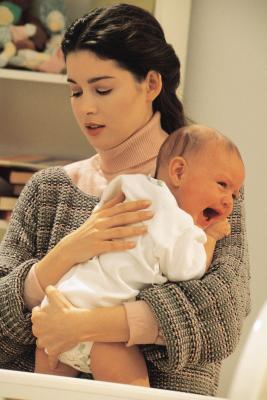Inflammation in the spinal cord and brain lining define meningitis. Young babies often experience the most severe side effects from the illness. A baby with other medical conditions contributing to a weak immune system face an even greater risk of meningitis. Quick treatment is crucial in preventing more serious complications, which can include death or long-term disabilities.
Types
Bacterial and viral are the two types of meningitis. Bacterial meningitis is the more serious type and needs immediate treatment. In newborns, strep B passed from the mother to the baby is commonly the cause of bacterial meningitis. Viral meningitis is typically less serious, but young infants might still face serious complications. The type of meningitis affects the course of treatment for your infant.
Diagnosis
The meningitis diagnosis is a key component in planning the course of treatment. The doctor needs to know for sure if your baby has meningitis. He also needs to know the type of meningitis. Spinal fluid collected through a spinal tap gives the necessary information. Full lab results take time so treatment might begin even without the results, especially if the baby is very ill.
Bacterial Treatment
A baby with bacterial meningitis needs intravenous antibiotics as quickly as possible. The illness typical moves quickly, making it critical to get care right away. In some cases, additional medications are needed to get the inflammation under control. If other complications arise, those symptoms will also be treated. The hospital stay could last two weeks or longer, depending on how your baby responds to the treatment.
Viral Treatment
Viral meningitis typically goes away on its own after several days. Even without the need for medication, infants are sometimes admitted to the hospital with viral meningitis so symptoms can be monitored. Comfort measures also help alleviate the symptoms. Infant pain reliever might provide your baby with some relief, but check with your doctor on dosing and make sure you choose infant rather than child pain reliever. Fluids to prevent dehydration and rest also help.
Considerations
The quick progression, particularly with bacterial meningitis, makes it essential to contact your child’s physician immediately if you suspect meningitis. The typical symptoms of headaches and a stiff neck are difficult to notice in babies. Watch for irritability, a lethargic state or changes in eating habits. Changes in the skin, including rashes, could also indicate meningitis. The illness is contagious so call your doctor if your child has contact with a person diagnosed with meningitis. A round of antibiotics might be administered to prevent meningitis from developing.





